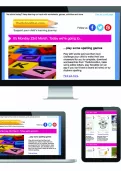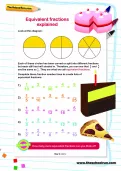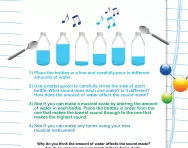Important update from TheSchoolRun
For the past 13 years, TheSchoolRun has been run by a small team of mums working from home, dedicated to providing quality educational resources to primary school parents. Unfortunately, rising supplier costs and falling revenue have made it impossible for us to continue operating, and we’ve had to make the difficult decision to close. The good news: We’ve arranged for another educational provider to take over many of our resources. These will be hosted on a new portal, where the content will be updated and expanded to support your child’s learning.
What this means for subscribers:
- Your subscription is still active, and for now, you can keep using the website as normal — just log in with your usual details to access all our articles and resources*.
- In a few months, all resources will move to the new portal. You’ll continue to have access there until your subscription ends. We’ll send you full details nearer the time.
- As a thank you for your support, we’ll also be sending you 16 primary school eBooks (worth £108.84) to download and keep.
A few changes to be aware of:
- The Learning Journey weekly email has ended, but your child’s plan will still be updated on your dashboard each Monday. Just log in to see the recommended worksheets.
- The 11+ weekly emails have now ended. We sent you all the remaining emails in the series at the end of March — please check your inbox (and spam folder) if you haven’t seen them. You can also follow the full programme here: 11+ Learning Journey.
If you have any questions, please contact us at enquiries@theschoolrun.com. Thank you for being part of our journey it’s been a privilege to support your family’s learning.
*If you need to reset your password, it will still work as usual. Please check your spam folder if the reset email doesn’t appear in your inbox.
5 top tips for success learning an instrument

1. Stay positive. Listening to someone practising an instrument isn’t always a pleasant experience! But try not to wince or comment when they miss a note because you could affect their confidence. They’ll also need to practise scales, which aren’t very easy on the ear, but whatever you do don’t complain about it!


Start a unique learning programme!
- Weekly programme for each school year
- Worksheets sent direct to your inbox
- Keeps your child's learning on track
2. Try to give your child some space and quiet to practise, for example in their bedroom or in the dining room with the doors closed. Often they don’t want an audience and they won’t want you singing along either. Keep practice time short e.g. 20 minutes, so they don’t get too tired. Don’t forget rewards can work as an incentive.
3. Don’t force practice. This can be really off-putting, especially if your child knows their friends and siblings are having fun elsewhere. Accept that some days your child will be feeling tired or under the weather and really won’t feel like practising. Agree they can have a day off now and again so they don’t feel too pressured.
4. However discordant your child’s musical efforts may sound, remember to praise them for the effort they put in, even if they are in the early stages of learning and can’t produce much of a tune yet. It’s easy to lose confidence when learning an instrument so it helps if you can be very generous with your encouragement.
5. Don’t focus too much on exams. While it’s rewarding for you and your child to progress up the grade levels, playing an instrument is about far more than that. Music exams can be pressured and it’s important only to enter your child into exams when they’re ready. They can re-take if they fail but it helps them stay confident if they only do exams when they feel prepared.
Help with the cost of musical education
If the cost of providing an instrument for your child is preventing them from taking up music, consider the brilliant Take it away scheme, an Arts Council England initiative to encourage more people to get involved in learning and playing music by providing interest free loans for the purchase of musical instruments.
Take it away allows parents to apply for an interest-free loan between £100 and £5,000 for the purchase of any kind of instrument and spread the cost over nine or 18 monthly repayments with a 10% deposit at the point of sale.








